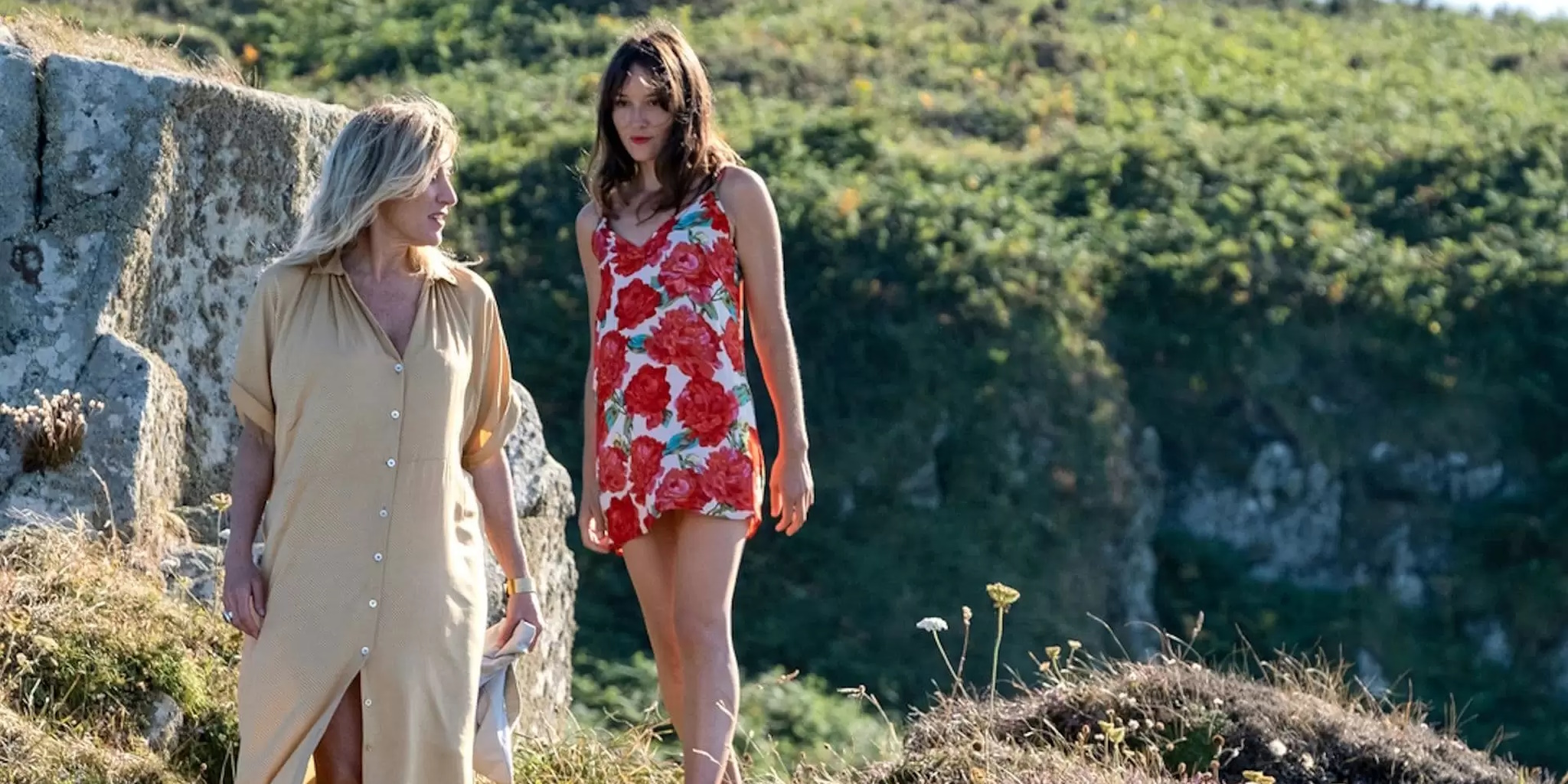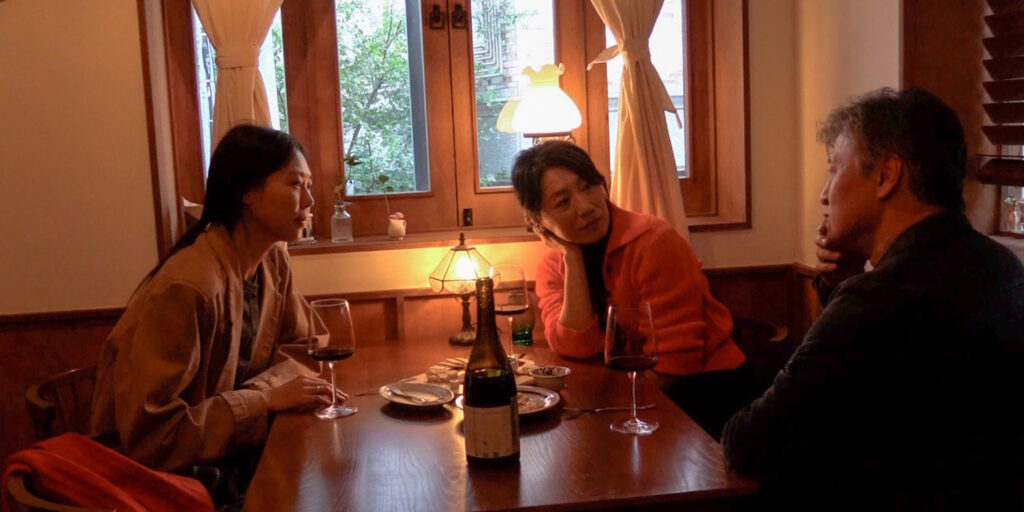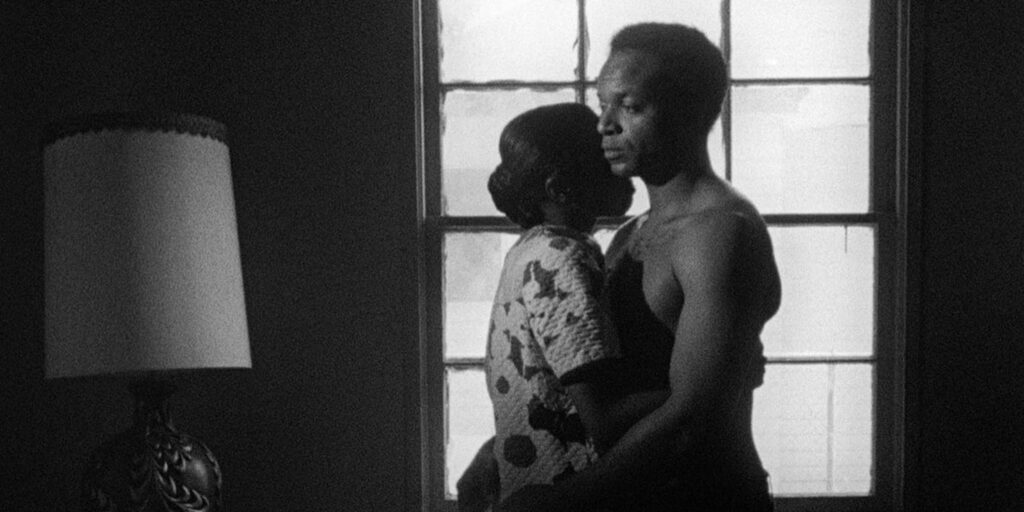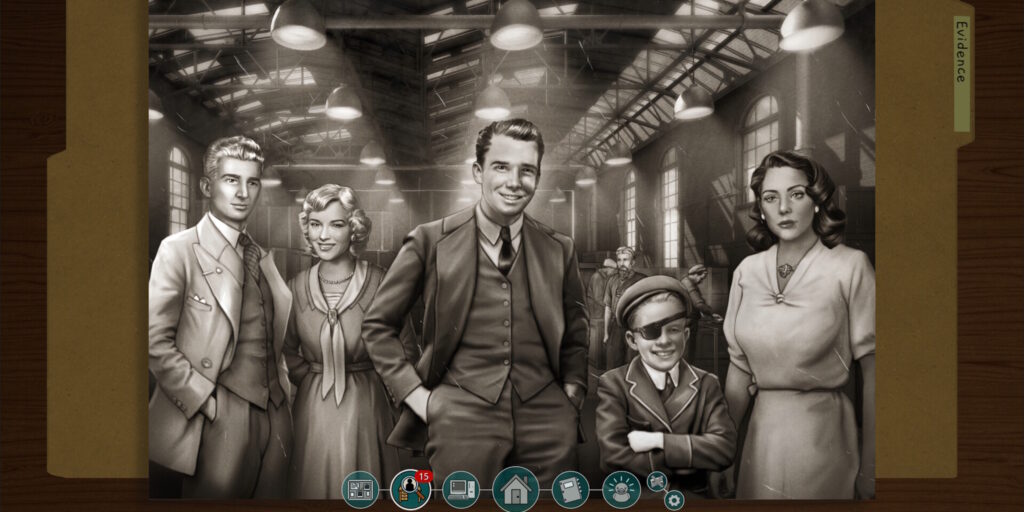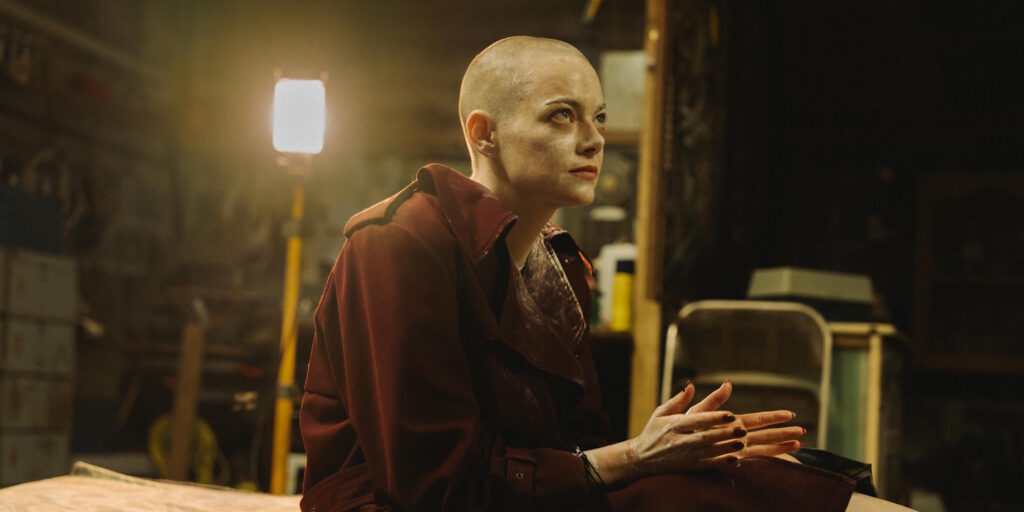[Originally published at Cinema St. Louis’ The Lens.]
Anaïs (Anaïs Demoustier) is kind of a mess. Her apartment is missing some key elements (a sofa, a smoke detector, a functional stove), but at least her bookshelf is nice and organized. She’s perpetually running late — literally sprinting from place to place — and always seems to have someone waiting impatiently for her whenever she gets where she needs to be. Whether it be her landlord, her ex-boyfriend, or her new (and much older) fling, Daniel (Denis Podalydès), it seems there’s not a single obligation or person that could motivate Anaïs to show up on time. She can’t be bothered, though — she’s about as carefree as one can be at 30 years old with very little money or direction in life. Until she falls in love, that is.
Anaïs in Love — writer-director Charline Bourgeois-Tacquet’s feature-length debut — follows the misadventures of its titular character as she navigates the complexities of this unexpected wrench in her plans to continue living aimlessly. She’s been romantically entangled plenty of times before, but after getting to know Daniel’s live-in partner, Emilie (Valeria Bruni Tedeschi), she starts to feel feelings she’s never felt with any man, challenging everything she thought she knew about intimacy. The intelligent and complex and alluring Emilie is a writer with a voice that Anaïs deeply connected with on a personal level long before they ever met in real life. Soon, Emilie begins to look like everything Anaïs didn’t even know she wanted. Of course, no actual lasting relationship can be so one-sided — the question is whether or not Emilie will reciprocate the feeling.
Demoustier is remarkable in the title role, breathing new life into the already tired Cracked Phone Screen Girl trope (the modern-day answer to the 2000s’ Manic Pixie Dream Girl) simply by dialing it back to something that feels more effortless than exhausting. The key lies in Anaïs’ attitude: Where other romantic comedies of the late ’10s and early ’20s feature female leads who want to change but can’t help being messy, Bourgeois-Tacquet excises any desire for her main character to better herself. She simply allows Anaïs to exist in her self-made chaos without really feeling too concerned about it. She’s nonchalant instead of neurotic, indifferent instead of anxious. Somehow, this insouciance feels more authentic than a version of Anaïs who desperately attempts to get her act together.
Anaïs in Love does more than just cleverly riff on contemporary romantic-comedy stereotypes, however. It actually has plenty to say about relationships and the dynamics that allow people like Anaïs to coast through them without realizing they’re pursuing something they don’t even want in the first place. It’s an interesting angle from which to observe 21st-century queer romance, and one that effectively explores the internal and external conflict faced by a woman who is finally taking the time to thoroughly examine her sexuality for the first time. Bourgeois-Tacquet has tapped into something strikingly truthful, forgoing those often unconvincing rom-com third-act story beats to get at the heart of something much more genuine.
It’s easy to draw parallels to last year’s The Worst Person in the World (2021), the Oscar-nominated Joachim Trier film — Anaïs in Love even premiered at the same Cannes Film Festival — but Bourgeois-Tacquet’s script and Demoustier’s performance deserve to be engaged with separately from Trier’s Oslo Trilogy conclusion. Anaïs in Love isn’t just less complicated, it’s also more earnest, a commendable thing in a day and age when the default is to be cynical or darkly comedic about the idea of letting romance wash over you like a tide. All too often, getting swept off your feet is portrayed as a curse, not a blessing. It’s refreshing to see the inverse here: someone reveling in the experience of being completely bowled over by love.
Anaïs in Love screens at the Galleria Cinema at 7:30 p.m. on Sunday, May 1 and at 8:15 p.m. on Tuesday, May 3.
